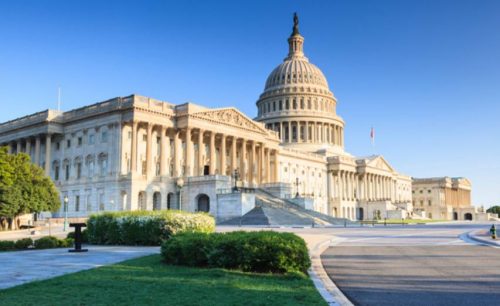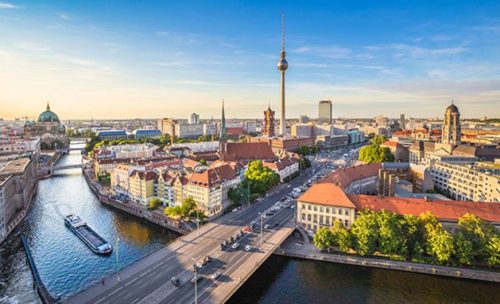London, United Kingdom, September 4, 2020 / TRAVELINDEX / The World Travel & Tourism Council (WTTC) has unveiled the latest set of measures designed to rebuild global consumer confidence, reduce risk and encourage the return of Safe Travels.
The latest protocols for the global Travel & Tourism sector focus on measures to ensure the reopening of adventure tourism, which should see an increase in popularity as travellers seek more unique experiences post COVID-19.
WTTC, which represents the global Travel & Tourism private sector, held detailed discussions with key stakeholders and organisations to ensure maximum buy-in, alignment and practical implementation.
The measures help to set clear expectations of what travellers can experience in the ‘new normal’ which offer safe environments as travel restrictions are eased.
Backed by the United Nations World Tourism Organization (UNWTO), the WTTC protocols also take into account guidelines from the World Health Organisation (WHO) and the Centre for Disease Control and Prevention (CDC), and the WTTC Safe Travels stamp recognises those destinations, countries, businesses and governments worldwide which have adopted them.
Protocols for the adventure tourism industry were compiled on the basis of insights and frameworks developed by the Adventure Travel Trade Association (ATTA), in collaboration with a number of key tour operators in the segment such as Abercrombie & Kent, Eurotur, Intrepid and The Travel Corporation (TTC), to support the safe, healthy and responsible restart of adventure tourism around the world.
Within these protocols, the adventure tourism industry refers to a wide variety of adventure tourism experiences including cycling, rafting, trekking, skiing, snowboarding, wildlife safaris and culinary tours, among others.
Not only are these activities mostly outdoors, thus limiting time spent in indoors; but group sizes can be managed to allow for physical distancing. It is expected that this type of tourism will see growth in the post-COVID landscape.
Gloria Guevara, WTTC President & CEO, said:
“Adventure tourism is becoming increasingly popular amongst travellers and will represent a key component to travel in the new normal. According to our recently launched COVID-19 Travel Demand Recovery Dashboard, it is also one of the fastest growing segments, which is why it is vital to establish measures allowing safe travels for adventure travellers.
“Consumer confidence is crucial for Travel & Tourism to resume. We know travellers will want to explore the world around them once more, so long as they are confident in their safety. The return of Travel & Tourism will help power the world’s much-needed economic recovery, which is why these protocols are so important.
“We would like to pay tribute to all those companies in the global private sector who have stepped forward and rallied around in support of the WTTC Safe Travels protocols. They create the consistency needed to allow a re-invigorated Travel & Tourism sector to re-open for business.
“The expertise from businesses large and small has contributed to define the new experience for travellers, and these robust global measures have been embraced around the world.”
Shannon Stowell, ATTA CEO, said
“As tourism professionals, our priority now is to see adventure travel come back strong, resilient and sustainably. WTTC and ATTA collaborating on global guidelines for adventure travel is a significant effort to support companies worldwide in re-opening as quickly and safely as possible.”
The welfare of travellers and the millions of people employed throughout the Travel & Tourism sector at the heart of WTTC’s comprehensive package of Safe Travels protocols.
They avoid the emergence of multiple standards, which would only confuse the consumer and delay the sector’s recovery.
They also provide consistency to destinations and countries as well as guidance to travel providers, airlines, airports, operators, and travellers, about the new approach to health and hygiene in the post COVID-19 world.
WTTC divided the new guidance into four pillars including operational and staff preparedness; delivering a safe experience; rebuilding trust and confidence; and implementing enabling policies.
Measures announced today include:
- Reduce participant capacity limits for activities as appropriate to allow for physical distancing
- Ensured activity difficulty levels do not exceed guest ability and skill, thus decreasing the need for a possible rescue
- Provide clear, consistent, and up-to-date communication on new health & hygiene protocols via the organisation’s channels, both digitally and physically through clear signage
- Promote contact tracing apps if required by local legislation
- Inform guests about support available if questions or concerns arise
- Share guest guidelines ahead of trip or activity digitally and in person upon arrival on the basis of advice from health authorities, which may include the wearing of face masks or coverings, guidance on hand hygiene and avoiding physical contact. Consider having consumers acknowledge guidelines
- Encouraged guests to purchase tickets online if possible
- Keep the same households, families, or members of group bookings together for all activities to lower risk of exposure for those outside of that unit, wherever possible
- Ensure, where possible, that each guest can handle their own equipment and gear for the duration of the trip. Where possible, guests should be encouraged bring their own equipment or gear, such as bikes, skis, and helmets among others
- Limited physical contact and queuing where possible
WTTC has previously issued details safe travel protocols for aviation, airlines, MICE, tour operators, hospitality, outdoor retail, attractions, car hire and short-term rental, which were widely endorsed and supported by top CEOs and business leaders globally.
It has also unveiled its landmark new global safety stamp to encourage Safe Travels and the reopening of the Travel & Tourism sector.
Evidence from WTTC’s Crisis Readiness report, which looked at 90 different types of crises, highlights the importance of public-private cooperation to ensure that smart policies and effective communities are in place to enable a more resilient Travel & Tourism sector.
According to WTTC’s 2020 Economic Impact Report, during 2019, Travel & Tourism was responsible for one in 10 jobs (330 million total), making a 10.3% contribution to global GDP and generating one in four of all new jobs.











